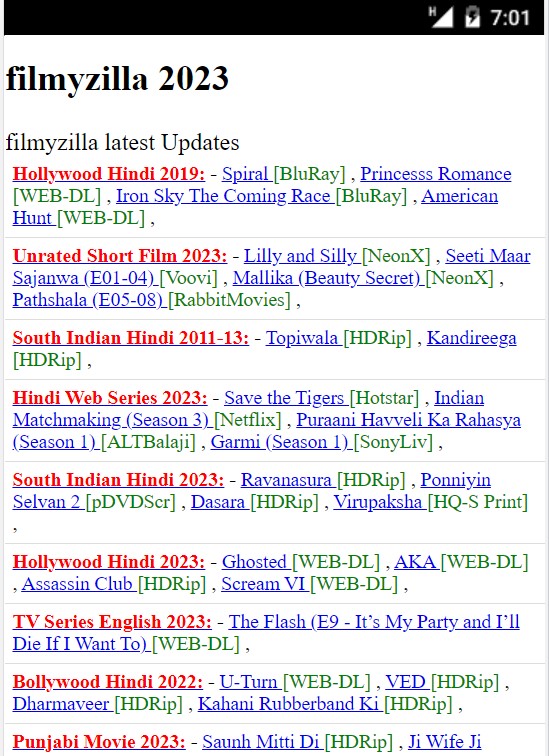Is the world of online movie downloads truly safe and legal? The proliferation of websites like Filmyzilla, Vegamovies, Mp4moviez, and others has made it easier than ever for cinephiles to access Bollywood, Hollywood, and regional films. Yet, this convenience comes with its own set of risks and ethical dilemmas. As we delve deeper into this topic, one cannot ignore the bold truth: downloading movies from unauthorized platforms is not only illegal but also poses significant cybersecurity threats.
The digital landscape has transformed how audiences consume entertainment. Platforms such as Filmyzilla have become infamous for offering free downloads of both new releases and classic films. While these sites attract millions of users seeking easy access to content, they often operate outside legal boundaries. For instance, downloading a film like Pravinkoodu Shappu or Akaal 2025 from Filmyzilla may seem harmless at first glance, but it undermines the efforts of filmmakers, producers, and actors who invest years in creating these works. Moreover, the links provided by such websites frequently lead to malicious software that can compromise personal data.
| Name | Srinivas Reddy |
|---|---|
| Date of Birth | January 15, 1980 |
| Place of Birth | Hyderabad, India |
| Career | Film Director |
| Notable Works | Chhaava (2025), Kshanam |
| Awards | Best Director - State Nandi Awards |
| Professional Information | IMDb Profile |
Despite the controversies surrounding illegal streaming services, the demand for them persists due to limited legitimate options available in certain regions. This gap between supply and demand highlights a broader issue within the global entertainment industry—how to balance accessibility with copyright protection. Consider the case of Chhaava, a much-anticipated Telugu action drama directed by Srinivas Reddy. Released in 2025, the film stars Ram Pothineni and explores themes of resilience and empowerment through its gripping narrative. However, shortly after its theatrical release, pirated copies began circulating on unauthorized platforms like Filmyzilla and Vegamovies.
The impact of piracy extends beyond financial losses for production houses; it affects everyone involved in the filmmaking process. From technicians to artists, each member of the crew relies heavily on box office revenues and legitimate distribution channels to sustain their livelihoods. When audiences opt for illegal downloads instead of supporting official releases, they inadvertently contribute to an ecosystem that devalues creative work.
Furthermore, the allure of free content masks the dangers lurking behind these websites. Links embedded within pages claiming to offer full movies often contain malware designed to steal sensitive information or encrypt files until ransom payments are made. Users unaware of these risks expose themselves—and sometimes entire networks—to severe security breaches. In addition, many of these sites engage in clickbait tactics, bombarding visitors with intrusive ads that further degrade user experience while generating revenue for operators.
Let us take another example: It Ends With Us, based on Colleen Hoover's bestselling novel. Adapted into a feature film released in 2024, this project garnered widespread acclaim for its heartfelt portrayal of love and domestic violence. Despite its success at the box office, pirated versions quickly surfaced online, undermining its commercial performance. Such incidents underscore the urgent need for stricter enforcement mechanisms against copyright infringement alongside increased awareness campaigns targeting consumers.
In light of these challenges, some stakeholders advocate for alternative solutions aimed at reducing piracy rates. One approach involves expanding affordable subscription models tailored specifically to underserved markets where internet penetration remains low. By partnering with local telecom providers, streaming giants could offer bundled packages combining mobile data plans with access to premium content libraries. Another strategy focuses on enhancing consumer education about the consequences of engaging with pirate sites, emphasizing both ethical considerations and potential hazards associated with using them.
Returning to our earlier discussion around Chhaava, it becomes evident why supporting authentic releases matters so much. Directed by Srinivas Reddy, known for his innovative storytelling techniques, the film represents a culmination of artistic vision and technical expertise. Its visual splendor, coupled with compelling performances by its cast, deserves recognition through proper channels rather than being reduced to compressed files shared illicitly across shadowy corners of the web.
Beyond individual titles, the battle against piracy reflects larger questions about intellectual property rights in the digital age. How do we strike a balance between fostering innovation and ensuring creators receive fair compensation for their labor? What role should governments play in regulating emerging technologies that facilitate unauthorized sharing of copyrighted material? These are complex issues requiring collaborative efforts from all stakeholders—from policymakers to tech companies to end-users themselves.
To illustrate the point further, consider Jaat [2025], another recent release whose unauthorized copies proliferated online shortly after hitting theaters. Produced under challenging circumstances amidst rising production costs, the film exemplifies the dedication required to bring ambitious projects to fruition. Yet, without adequate safeguards against piracy, such endeavors risk becoming unsustainable ventures doomed to fail despite their merits.
Finally, as technology continues advancing, so too must strategies combating piracy evolve accordingly. Emerging tools leveraging artificial intelligence and blockchain promise enhanced detection capabilities capable of identifying counterfeit content faster than ever before. At the same time, fostering greater transparency throughout supply chains ensures authenticity verification processes remain robust enough to deter would-be offenders.
In conclusion, while the temptation to indulge in free movie downloads might appear irresistible at times, understanding the implications of doing so paints a very different picture. Supporting legitimate releases not only respects the hard work invested by countless professionals but also contributes toward building healthier ecosystems conducive to creativity and growth. So next time you're tempted to visit Filmyzilla or similar platforms, pause and reflect—is watching your favorite movie worth compromising your values and safety?



